
Exciting new series on “Voice, Body and Movement for Lawyers – How to connect with the jury and find Justice Through Dramatic Technique!”
Click here to find out more
Lawyers have a reputation for protracting disputes rather than facilitating them. If attorneys were trained as facilitators rather than perceived as impediments to the dispute-resolution process, perhaps that reputation would benefit greatly. In practice, a facilitator is a neutral dispute resolution practitioner that provides structure and process to the interactions of a group to help them participate fully and think creatively to work together better and move through a problem. Facilitation allows the group to explore issues, giving the members the space to evaluate options and find areas of consensus. If attorneys were trained as facilitators rather than perceived as impediments to the dispute-resolution process, perhaps that reputation would benefit greatly.
This course will explore what facilitation is, and how lawyers can become facilitators for their clients to resolve their problems.
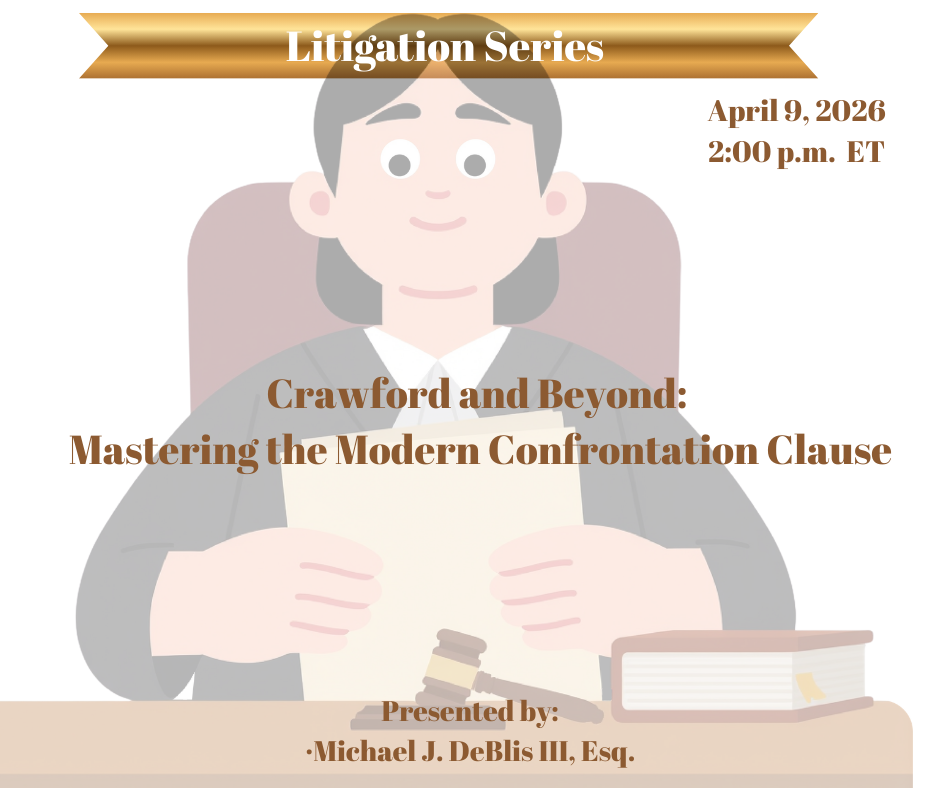
This program provides a comprehensive analysis of the Sixth Amendment Confrontation Clause as reshap...
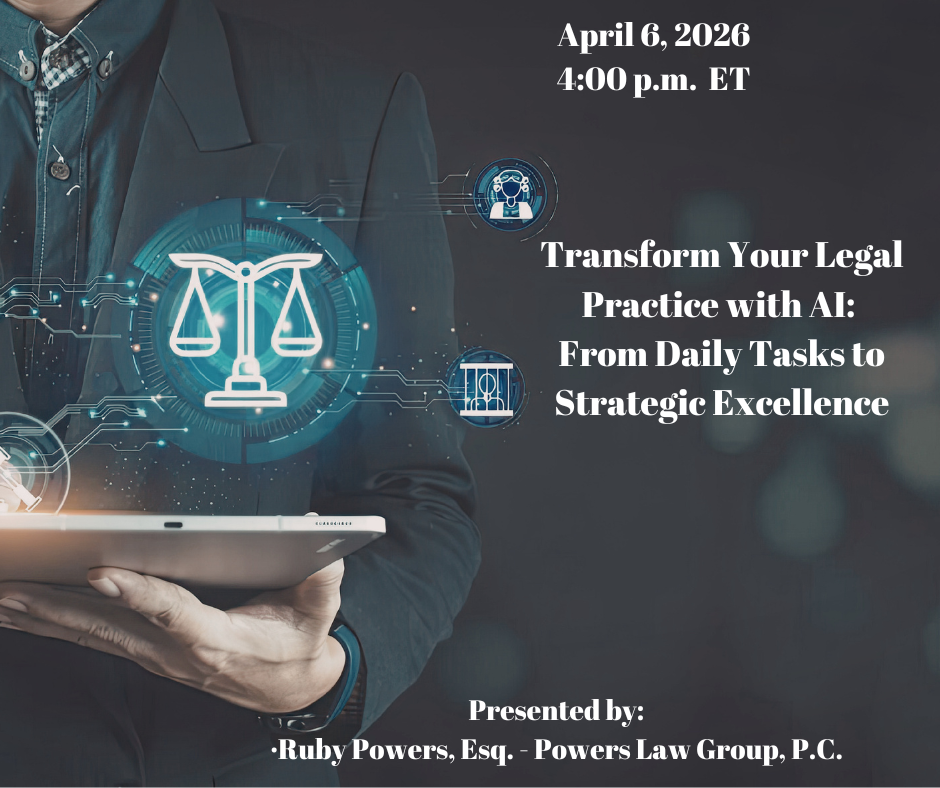
This course provides a strategic roadmap for attorneys to transition from administrative burnout to ...

This presentation provides an overview of copyright law particularly as it applies to music. The pre...
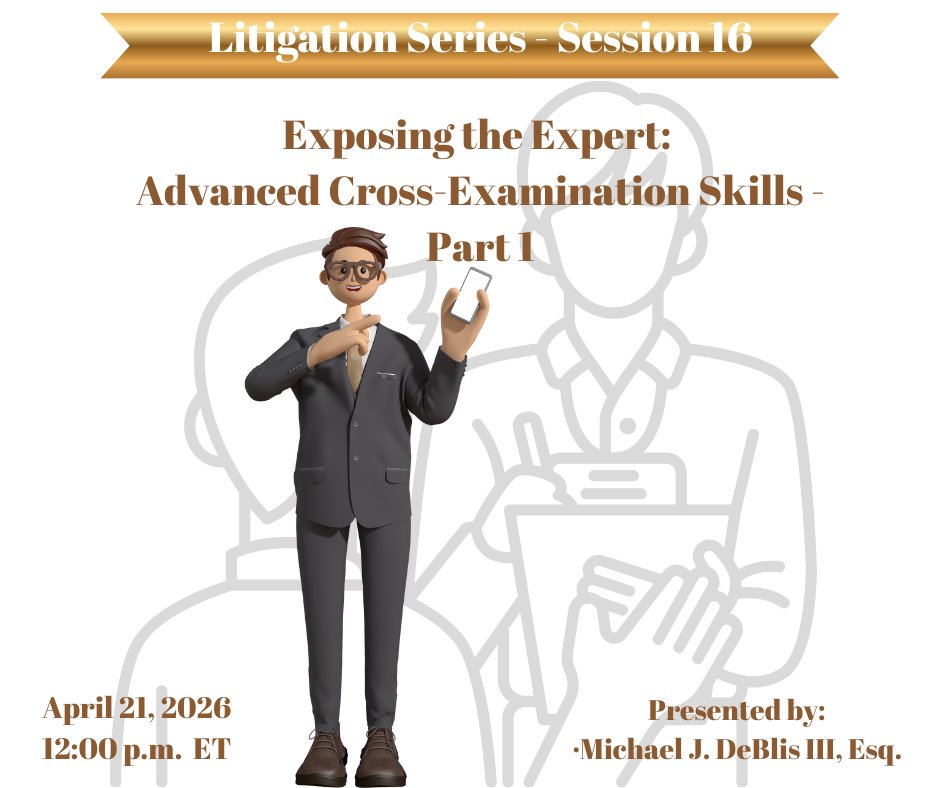
Part 1 - This program focuses specifically on cross?examining expert witnesses, whose credentials an...
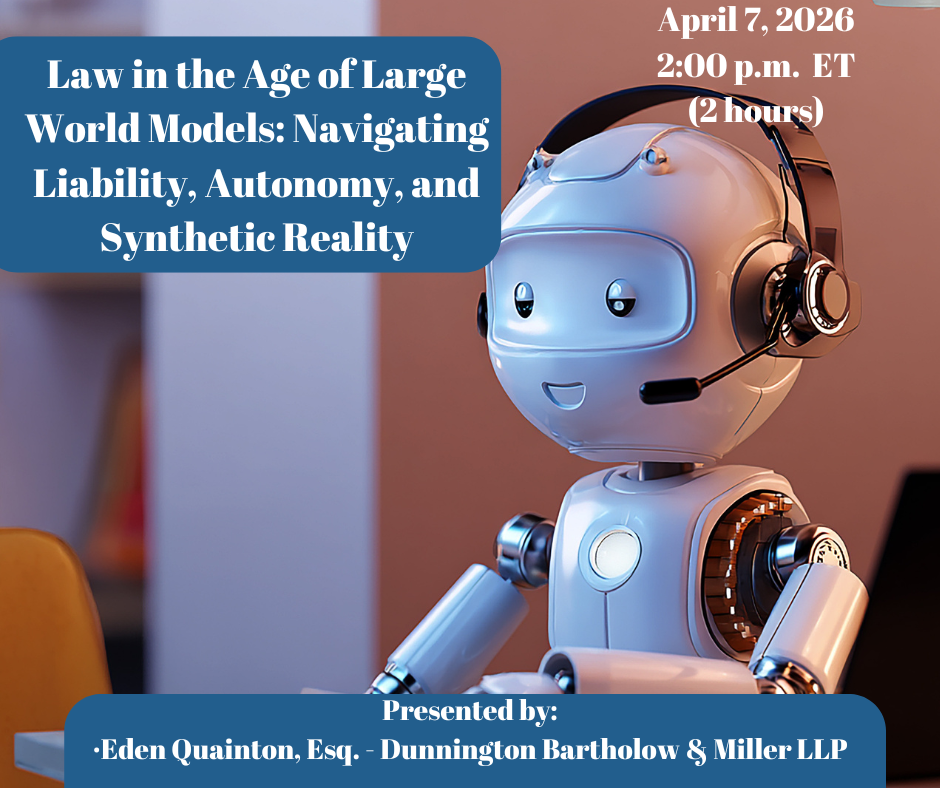
Large World Models (LWMs)— the next generation of AI systems capable of generating...
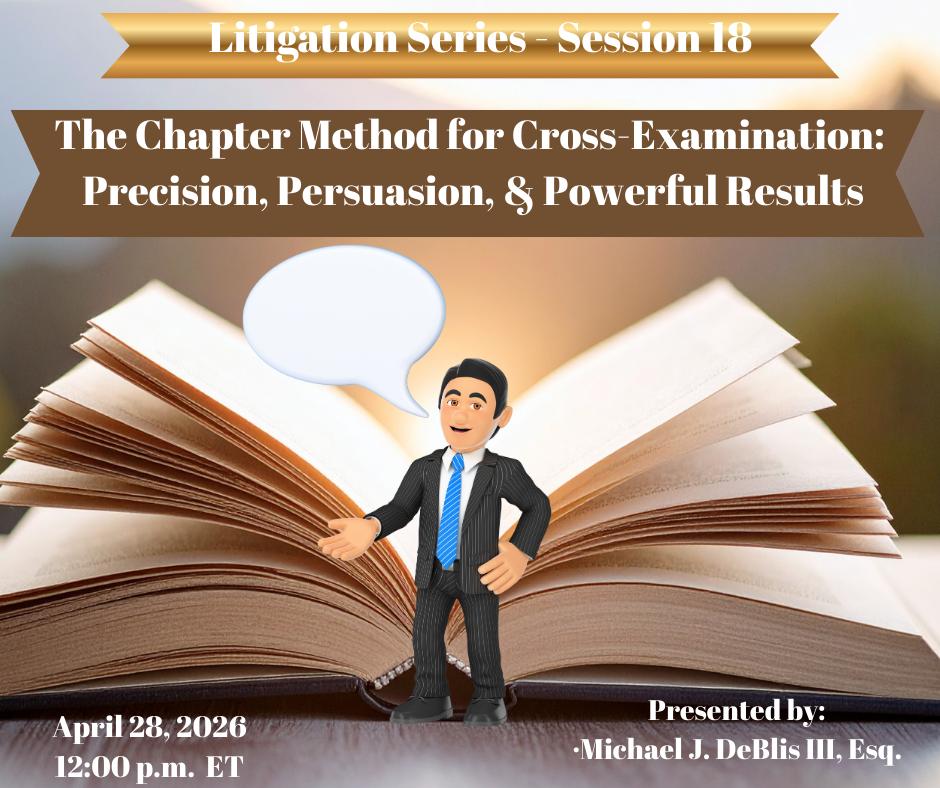
The “Chaptering Your Cross” program explains how dividing a cross?examination into clear...
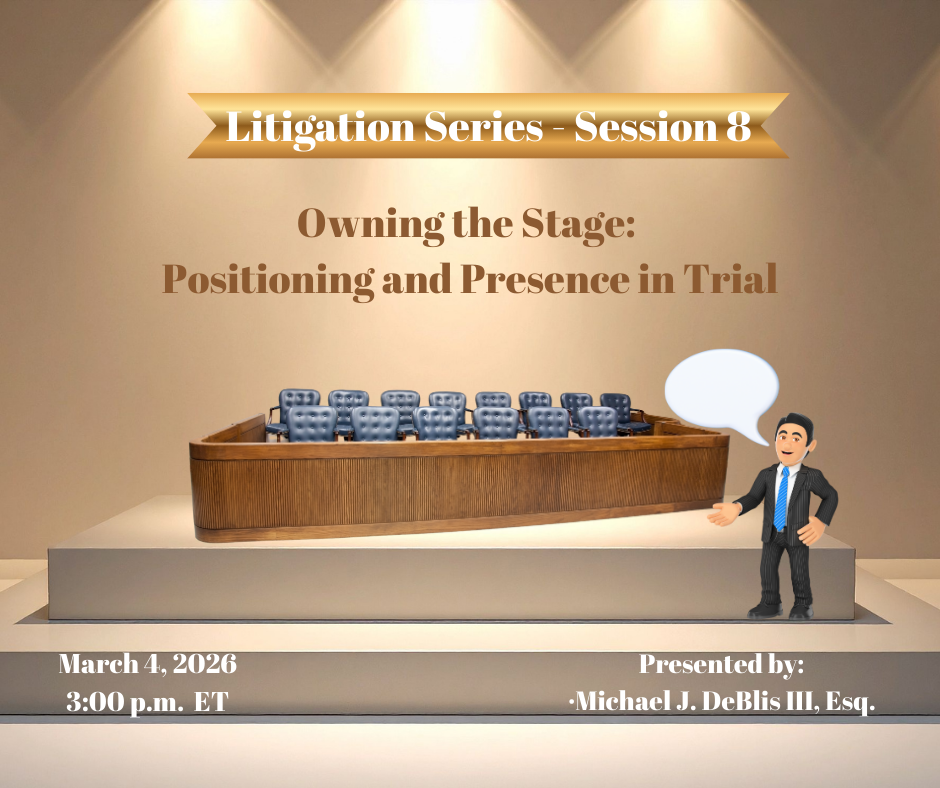
This presentation explores courtroom staging—how movement, spatial awareness, posture, and pre...
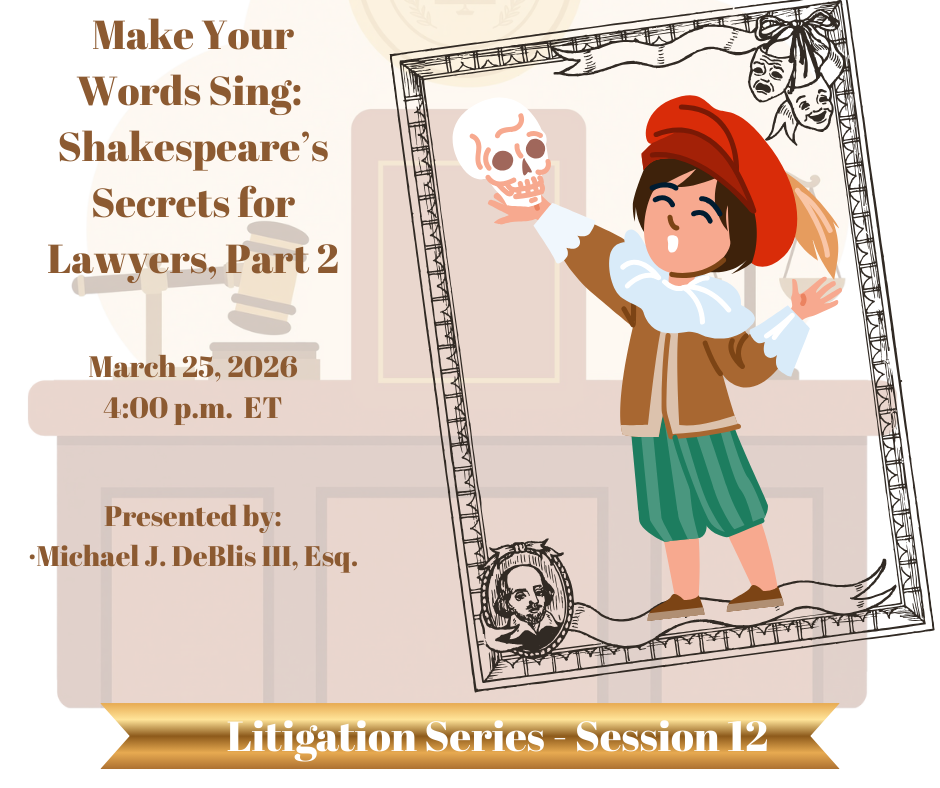
This companion program to Part 1 goes deeper into the rhetorical power of Shakespeare, emphasizing h...
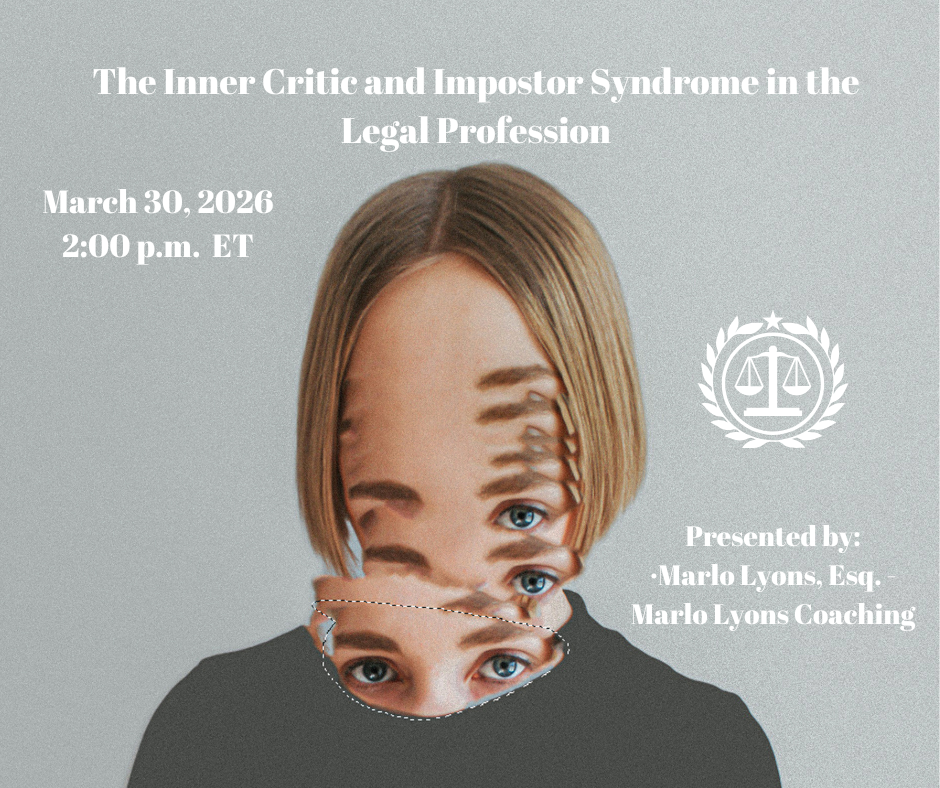
In high-stakes, high-pressure environments like the legal field, even the most accomplished professi...
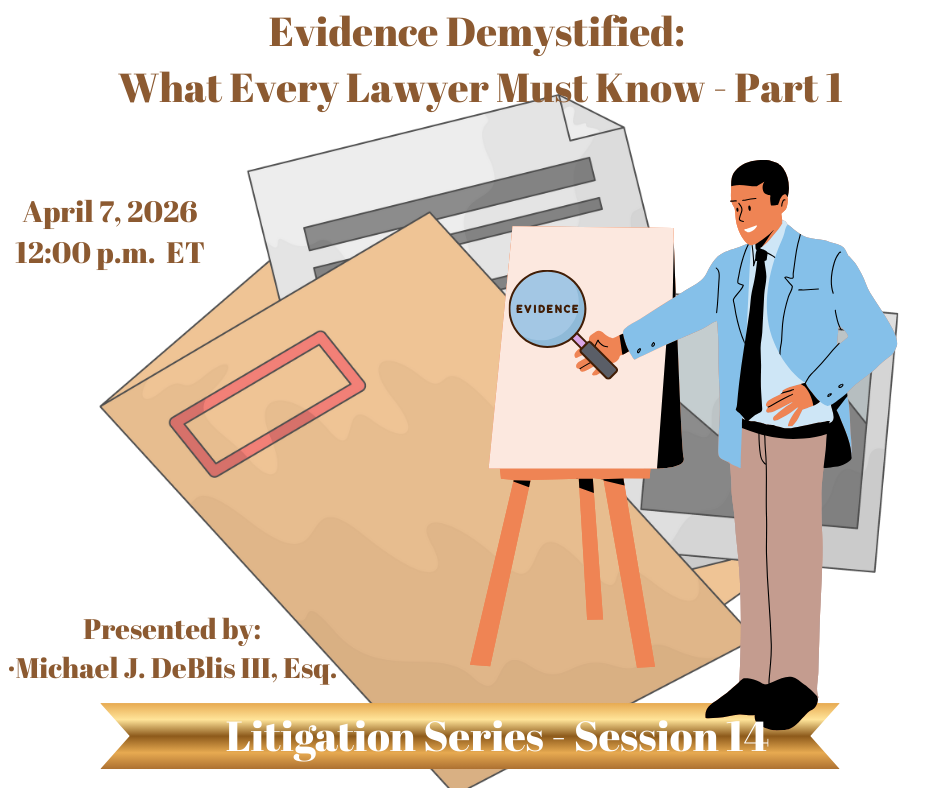
Evidence Demystified Part 1 introduces core evidentiary principles, including relevance, admissibili...